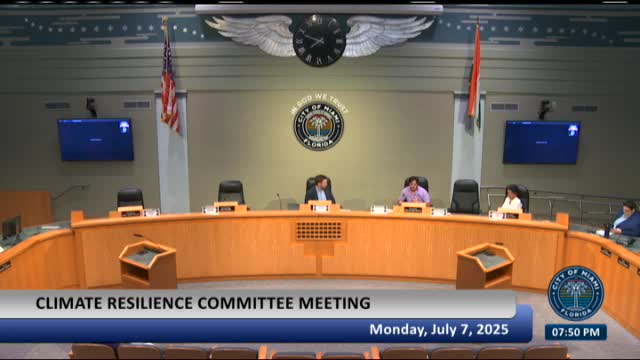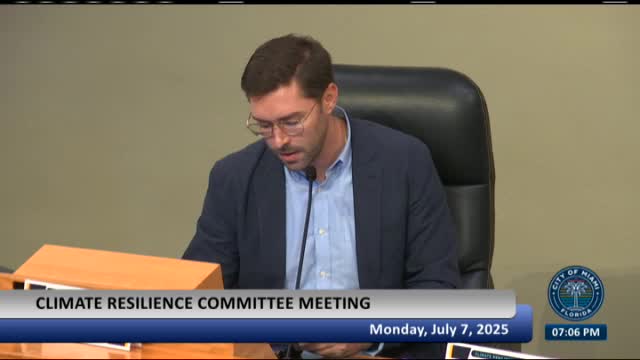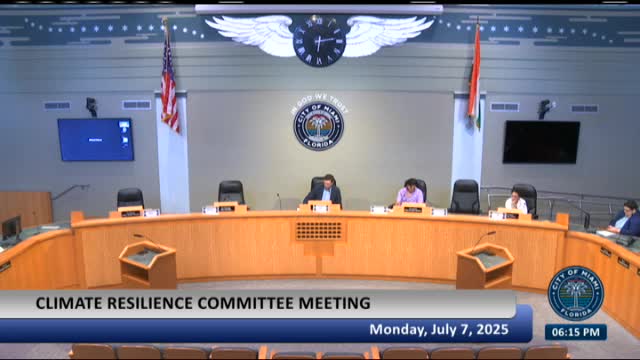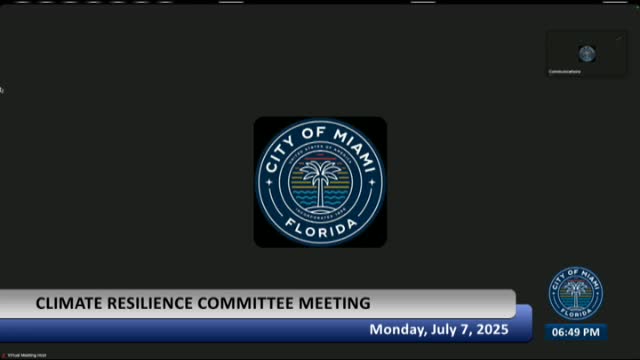Article not found
This article is no longer available. But don't worry—we've gathered other articles that discuss the same topic.

Committee member proposes LEAF community forestry program to boost canopy and grassroots stewardship

City of Miami Office of Resilience reports City Hall Energy Star certification, heat‑sensor home pilot and park Wi‑Fi expansion

Climate Central briefs Miami resilience committee on attribution tools, coastal risk and new hurricane‑attribution work

